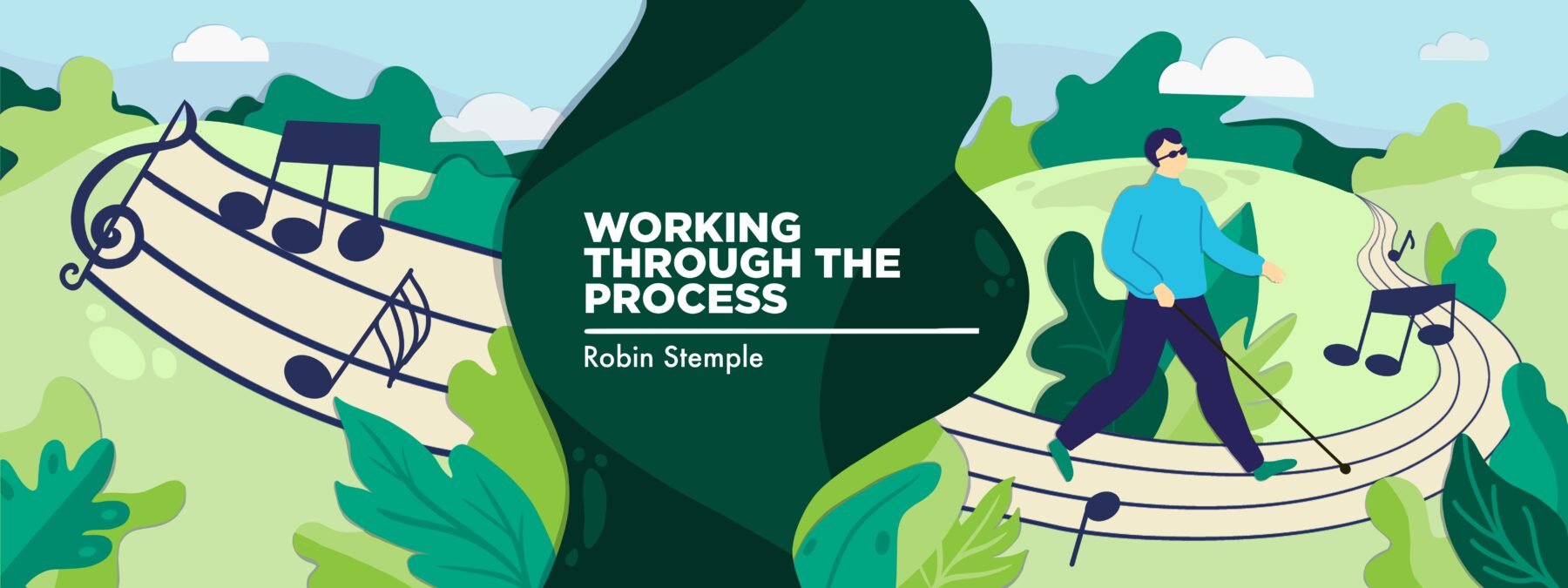When I finally discovered the benefits of support groups
Sharing with fellow MD patients is a chance to learn and impart what we know
Written by |

I’ll admit that I was a support group cynic in my younger days. My attitude was that I’d figure things out on my own. I just couldn’t see the benefit of sitting around a table and talking to others about my struggle with facioscapulohumeral muscular dystrophy (FSHD). In retrospect, my viewpoint was shortsighted and selfish.
My first actual experience with support groups was forming one for people who were blind or vision-impaired a couple of years after I lost my sight. The group met at a local church once a month for about a year. It eventually evolved into the Somerset County Blind Center (SCBC), a small nonprofit I directed from 1995 to 2008.
Many members became SCBC employees and continued to participate in group sessions, along with other vision-impaired people from the community. Except for an occasional visit to observe meetings, however, I stopped participating in the support group part of it. As the organization’s director, newsletter editor, chief fundraiser, and sometimes bathroom cleaner, I simply couldn’t sit still for an hour to discuss vision loss.
Behind the scenes
When SCBC merged with a larger blindness organization, my role changed. I took a course on how to conduct support groups and realized that they’re much more than just a group of people gathering to cry on one another’s shoulders. These groups provide folks the opportunity to share knowledge and skills that are invaluable to other members.
We also brought in professionals in the vision-loss field to talk about medical developments, new technology, and available services.
We expanded the number of support groups from one to four. We held group meetings at a number of locations around Somerset County to give more vision-impaired residents in our area an opportunity to participate. Still, my perspective was that of a leader of these groups, not a participant, so I still didn’t receive the full benefits of them.
In the late 1990s, my wife drove me to what for many years had been my only experience with a support group for people with FSHD. At the time, I was living in rural Shanksville, Pennsylvania, and it was a long drive to attend. Plus, only a handful of people were there. I didn’t find it helpful, so we didn’t return for any more meetings.
Now that I’m semiretired, I have more time and can give muscular dystrophy support groups another try. In the past eight years, I’ve participated in webinars sponsored by the FSHD Society and the Muscular Dystrophy Association. While these were one-time events, they introduced me to leaders in the muscular dystrophy community.
Eventually, I started participating in the FSHD Society’s monthly online wellness group. At first, my attendance was pretty sporadic, but over time, the group became a much more regular part of my schedule. I find it beneficial when participants share ideas and mutual encouragement.
I also became a member of the Western Pennsylvania chapter of the FSHD Society. When I lived in Shanksville, I could only participate from a distance. Now that I live in Pittsburgh, I plan to become more active in this group.
I’ve also started to participate more frequently in “FSH Friends” and “FSH Today,” two private Facebook groups dedicated to the FSHD community.
And there’s more: I’m also exploring the Muscular Dystrophy News Forums on this website. These forums are an additional space where someone dealing with muscular dystrophy can ask questions and chat with folks who share a similar journey.
Whether it’s through a support group, a Facebook group, or an online forum, I’ve been able to connect with people who’ve generously shared their wisdom and experiences. Of course, I hope I can help others who are dealing with FSHD by sharing any knowledge I’ve gained as I’ve walked the FSHD road for the past 51 years.
If you’re not currently a member of a support group, I suggest that you consider joining one. I think that, like me, you’ll find it quite beneficial.
Note: Muscular Dystrophy News Today is strictly a news and information website about the disease. It does not provide medical advice, diagnosis, or treatment. This content is not intended to be a substitute for professional medical advice, diagnosis, or treatment. Always seek the advice of your physician or another qualified health provider with any questions you may have regarding a medical condition. Never disregard professional medical advice or delay in seeking it because of something you have read on this website. The opinions expressed in this column are not those of Muscular Dystrophy News or its parent company, Bionews, and are intended to spark discussion about issues pertaining to muscular dystrophy.







Leave a comment
Fill in the required fields to post. Your email address will not be published.